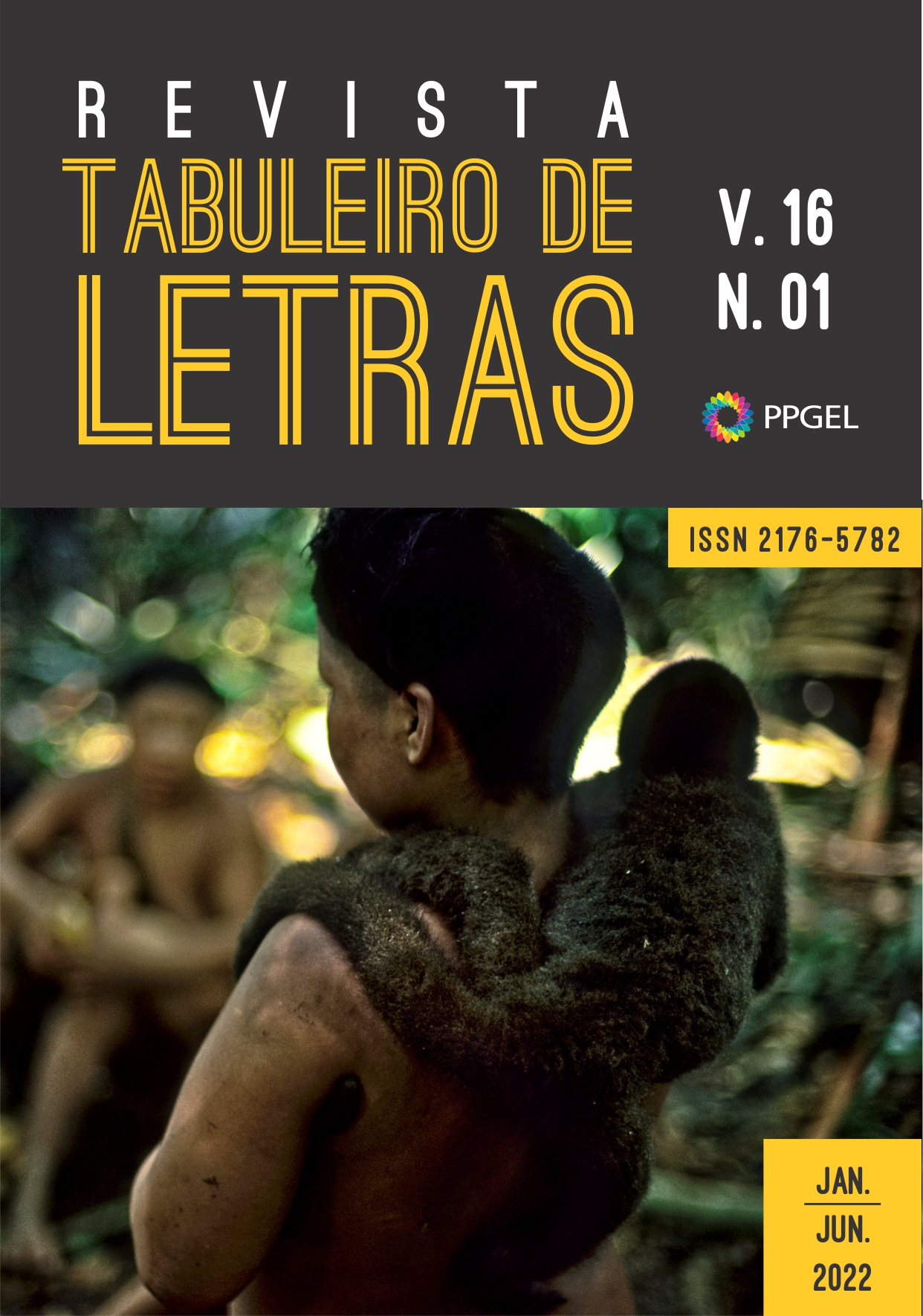Os Apurinã, Tenetehara, Kambeba, Huni Kuĩ, Maraguá, Ticuna e Krenak gritam: cuidado, o Curupira vai te pegar!
DOI:
https://doi.org/10.35499/tl.v16i1.14040Abstract
Curupiras will catch you in this text that seeks to disclose these multiple possibilities of narrating and existing. It is an analysis that aims to contribute to decolonizing literature studies and deconstructing stereotypes attributed to indigenous enchanted beings. There is an ecological focus, based on the ideas of Krenak (2019), in the direction of highlighting the regulatory power of the Curupira as a protector of the forest and life. He would invent denominations, capacities of action, of interpretation and of comparison between works of indigenous authorship Apurinã, Tenentehara, Kambeba, Huni Kuĩ, Maraguá and Ticuna. These versions were heard by the authors, by fellow researchers, known through interviews or books published by indigenous authors. The texts by non-indigenous authors mentioned appear only as a counterpoint, in the direction of highlighting some of the different forms of appropriation and transformation of these literatures.
Downloads
References
APURINÃ, Waykury. (morador da aldeia Kamicuã) [05/02/2021]. Entrevista o Curupira/Caboclinho Da Mata, Terra Firme por Antonio Rogério dos Santos.
CASCUDO, Luís da Câmara. Dicionário do Folclore Brasileiro. Rio de Janeiro: Ed. Ediouro,1954.
COELHO, José Rondinelle Lima. Cosmologia Tenetehara Tembé: (re)pensando narrativas, ritos e alteridade no Alto Rio Guamá – PA. Universidade Federal do Amazonas – UFAM - Museu Amazônico Programa de Pós-Graduação em Antropologia Social Manaus – Amazonas, 2014
DORRICO, Julie. Posfácio. In: NÚÑEZ, Geni. Djatchy Djatere: o saci guarani.
Ilustrações de Wanessa Ribeiro e Joyce Ara’i Firmiano. Brasil: Zió Zines, 2020.
FIOROTTI, Devair Antônio. Do Timbó ao timbó ou o que eu não sei, eu invento. Aletria: Revista e estudos literários. V. 22, n. 3, 2012.
KAMBEBA, Marcia Wayna. O lugar do Saber, São Leopoldo-RS: Ed. Casaleira, 2020.
KRENAK, Ailton. Ideias para adiar o fim do mundo. São Paulo: Ed Companhia das letras, 2019.
______. A vida não é útil. São Paulo: Editora Companhia das Letras, 2020.
MONTE, Nieta; FREIRE, José Ribamar Bessa. Te mandei um Passarinho. Brasília: Ministério da Educação, 2007.
MUNDURUKU, Daniel. Foi vovó que disse. 2. ed. Ilustrações de Graça Lima. Porto Alegre: Edelbra, 2014.
RODRIGUES, Alan (Professor da Universidade Federal do Amazonas) [15/06/2020]. Entrevista o Curupira 7 espíritos realizada pelo googlemeet por Antonio Rogério dos Santos.
SILVA, Antônio José da (morador de Lábra-AM). [7/09/2021] Entrevista Vício na caça parte 1 –Entrevistado por Antonio Rogério dos Santos às margens do rio Sapatini, disponível em https://youtu.be/p_i2oxLGtS4.
______. Vício na caça, parte 2 - Entrevistado por Antonio Rogério dos Santos às margens do rio Sapatini, disponível em https://youtu.be/i6t01YeGeRs.
VIEIRA, Mônica do Corral. Histórias Tembé: sobre narrativas e autoidentificação. Tese (doutorado) na Universidade Federal do Pará, Instituto de Filosofia e Ciências Humanas, Programa de Pós-Graduação em Antropologia, Belém, 2016.
VIVEIROS DE CASTRO, Eduardo B. Metafísicas canibais: elementos para uma antropologia pós-estrutural. São Paulo: Cosac Naify, 2015.
YAMÃ, Yaguarê. As Pegadas do Kurupyra. Ilustrações de Uziel Guaynê Oliveira. São Paulo: Mercuryo Jovem, 2008.
Downloads
Published
How to Cite
Issue
Section
License
Autor(es) conservam os direitos de autor e concedem à Revista o direito de primeira publicação, com o trabalho simultaneamente licenciado sob a Licença Creative Commons Attribution que permite a partilha do trabalho com reconhecimento da autoria e publicação inicial nesta Revista.

















